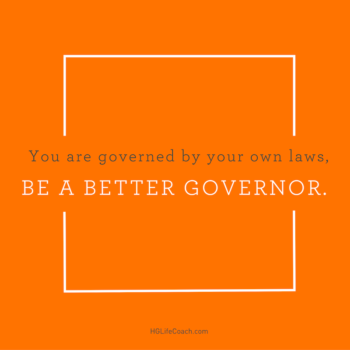To the kids: “Don’t forget to do your homework, put away your clothes, and set the table.”
To the husband: “Make sure you look me in the eye, write a card on my birthday, and set the alarm.”
To the staff member: “Always remember: to send the invoices, report your statistics, and communicate about vacation duties.”
To myself: “Take my vitamins, charge my phone, and write the blog.”
NAG NAG NAG!
Do you ever feel like it’s all you do? Think about it. How much time did you spend today trying to get yourself or someone else to do something you thought was best? And it’s not just mundane things like the chores and tasks above. It’s also really important things like showing up for people, listening with respect, and taking risks. Most of us don’t nag ourselves or others about things that deep but we probably should!
Or better yet, could there be a system that eliminates the need to nag?
First, let’s talk about why we feel the need to nag (cajole, manipulate, or force could also work here) to begin with. It starts with a good intention: taking care of chores and schoolwork makes a child proud and prepared for a good life, for example. Or planning romantic moments is part of the intention of keeping love alive. Great. But then the mind gets in the way.
The “brat” voice pops up with an easier idea like stay on the couch, check FaceBook, zone out, watch tv, eat.
The chicken voice pops up with things like, “I’ll do it later, I have plenty of time” or “I don’t really need to do it.” These are masks for, “I am not sure how to do it” or how I am going to feel when I try so I am going to avoid it.
And even though we may be inspired by our good intention, the brat and the chicken win. We have no choice but to believe there is something wrong with us, our time management skills or “how it is” because we can’t see we just simply made a choice not to do the thing we intended to do or told someone we’d do.
Get a feel for how The Handel Method® could benefit you.
Now why doesn’t the government have to nag us to stay within or around the speed limit? Because the signs are posted everywhere and there is a really annoying (and sometimes dangerous) consequence if we don’t!
Consequences are the antidote to nagging. It’s so simple it’s silly. People always marvel at it. If I don’t hand in my report on time I owe $5 to the scholarship fund. If I interrupt my husband, I have to do one of his chores. If I skip a meal, I have to sleep on the floor for a night. If I blow off a deadline, I have to take my boss to lunch. If I pick at my skin, 100 push-ups. Oh, there are so many choices. Anywhere you want to improve, simple new laws with consequences are surely missing. And conversely wherever you are succeeding, most likely there are inherent laws and consequences that keep you alert regarding your choices!
If you want to stop nagging yourself, design your laws/promises and consequences. And share them with everyone. You can’t force most people to do their own, but it is likely they will want to follow suit once they see how it benefits them.
My client Shirlee’s story was the inspiration for this blog. She shared her promises with her kids for months and one day her son said he was fed up with her nagging him and he finally realized how to quiet her down. He showed her this list of laws and consequences. All her work paid off! Now the consequences do the disciplining, not the mommy. Ahhhhh!
We all follow subconscious rules anyway and suffer real consequences based on the choices we make. What if we DESIGNED these vs. semi-blindly following what we “naturally” would do when it so rarely makes us really proud? Let’s.
Love,
Laurie

